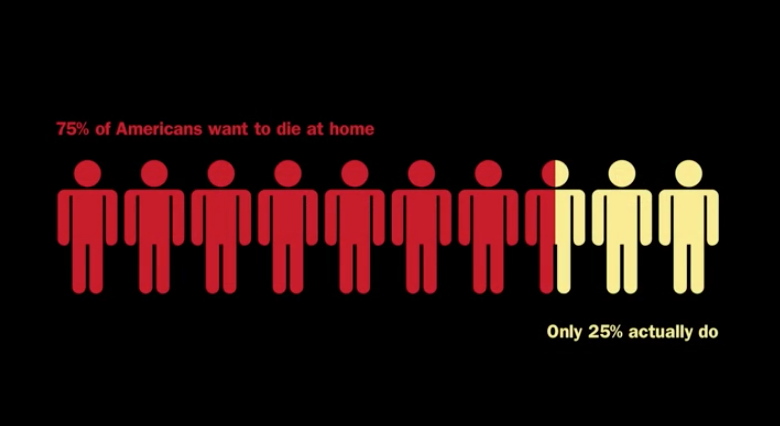Since I begin to think about "Hospice Care" or "Palliative Care" as a topic or kind of one direction of my thesis, I've been trying to get to know more about this area, trying to think about what is exactly the thing that attract me.
It's a heavy topic, but it's about humanity. Sometimes we don't like to talk about it, but we do care it, like we care the ending of a beautiful story, we of course care the ending of our and our loved ones’ life.
In China, the hospice care is not very widespread, or we don't even know there is an organisation or kind of service like that. It seems like family members usually care the physical treatment more than the experience or feelings that patients or themselves would have. And also for us, it's kind of taboo to talk about "death".
I notice the reason why I I have this topic in my mind is about my grandpa. He died of lung cancer and had a really bad experience in hospital to spend his last few days of his life. He felt pain, weakness, and scared. And after my grandpa passed away, my grandma could not accept it, and because of less psychological counselling, she has depressed for a very long time, even now. And for the whole family, we all love my grandpa, we want to let him accept the best medical treatment. But the reality was, there were a lot of facilities around him and what I can see seems that the "over" treatment aggravated his suffering and made him feel worse.
"Generally the patients who have the highest expenditures at the highest suffering, pain, depression and more often that not, they die sooner." Told by Timothy Ihrig, a palliative care physician, "... those individuals who had more tests, more bills, more chemotherapy or more whatever, the more what we do to someone, it decreases the quality of their life. And it shortens it, most often. "
"Hospice is care for people who are in the last stages of a terminal illness up until their last breath. " (Alia Indrawan at TEDxUbud). As a hospice nurse, Alia said the most important thing that the experience taught her was, it's not really about how much time we have, it's how we live these moments we have, that matter.
I like an international movement which called "Death Over Dinner". The goal of this project is to gather people from different area and background to dine and discuss their views on the end-of-life. Michael Hebb, the founder of this movement, gave a talk on TEDMED and one of his words I really like :
"... Looking at death has taught me how to live."
This is not about end of life, this is about life. Even if I have no idea what can I do yet, but I have a strong willing to do something in this area, as a human, for human.
References:
- DEATH OVER DINNER: http://deathoverdinner.org/about
- Michael Hebb: Let's have dinner and talk about death: http://www.tedmed.com/talks/show?id=64618
- essons from a hospice nurse: Alia Indrawan at TEDxUbud:
https://www.youtube.com/watch?v=2xs8qmk0OPc
- Palliative Care, a Different Voice in Healthcare: Timothy Ihrig at TEDxDesMoines:
https://www.youtube.com/watch?v=BI-CnsKyOuk
